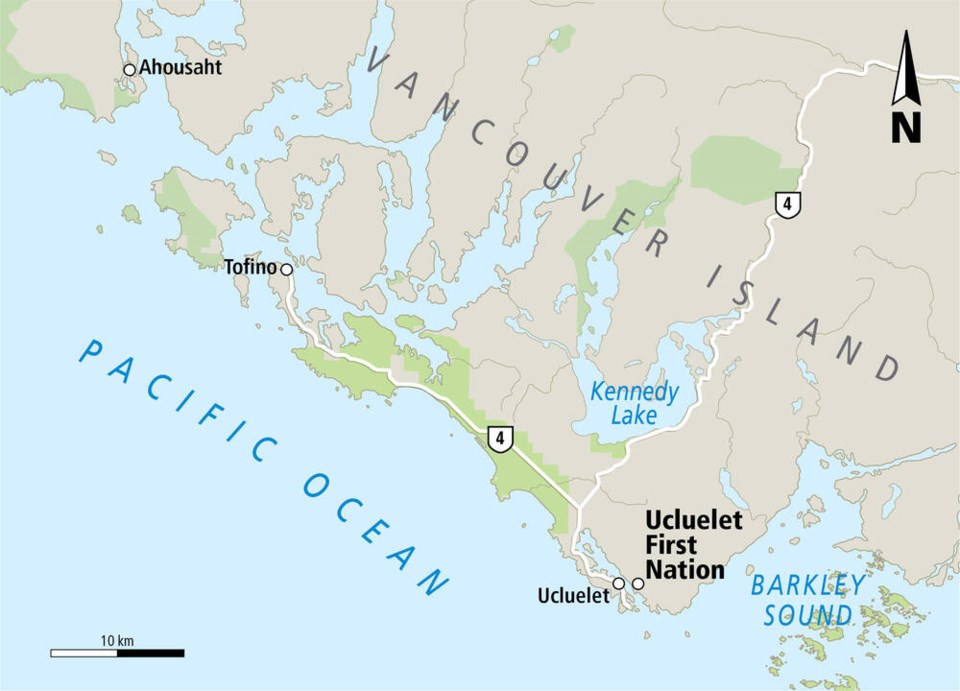Ucluelet First Nation has proclaimed a state of emergency, allowing only residents whose travel is essential to enter the community of Hitacu after confirmation of a COVID-19 outbreak.
“Non-essential travellers and non-residents will be asked to turn around and not enter,” said a letter posted Friday on the First Nation’s website, which warns failure to comply could result in a fine of up to $10,000 or a six-month prison term.
Ucluelet First Nation president Charles McCarthy thanked residents for their co-operation “during this difficult time.”
While he said vaccination is the best protection, he warned that it’s still possible for people with one or two vaccine doses to catch or spread the virus.
Government offices in Ucluelet First Nation are closed with the exception of essential services, which only fully vaccinated individuals can visit, the letter said. While non-essential government buildings will be locked, residents can contact staff, who will be able to assist them.
Unless there’s an emergency, people who have tested positive for COVID-19 are asked to isolate for at least 14 days.
Visitors are not permitted, except health-care professionals, it said.
Those with COVID symptoms are asked not to visit others or receive visitors and to minimize contact with household members until they’ve had a negative test.
Goods and services must be screened by the nation’s executive or director of operations before entering the region, the letter said.
The Ahousaht First Nation near Tofino is also experiencing an outbreak, but on Monday, active COVID cases had decreased to eight from more than 20 in late September. In total, the First Nation has experienced 75 cases in and outside the community.
This week, First Nation Health Authority chief medical health officer Dr. Shannon McDonald said she had spoken with her federal counterparts and other health leaders about getting booster shots for First Nations members who received their first doses as early as December 2020 and January 2021.
On Monday, she said there were 676 active COVID‑19 cases in First Nations on and off reserve in B.C., up from fewer than 20 active cases in mid-August, before the arrival of the Delta variant. Of those active cases, 58 are in hospital.
Provincial health officer Dr. Bonnie Henry said this week that discussions are ongoing across Canada with the National Advisory Committee on Immunizations and council of chief medical health officers as to what other groups need booster shots or third doses, including First Nations communities, health-care workers immunized early in the year, people living in group settings and seniors living in the community.
Currently in B.C., booster shots are going to residents of long-term care and assisted-living facilities, as well as 135,000 people who are deemed extremely and moderately clinically vulnerable.
Henry said health officials will have more to say about boosters in coming weeks.



